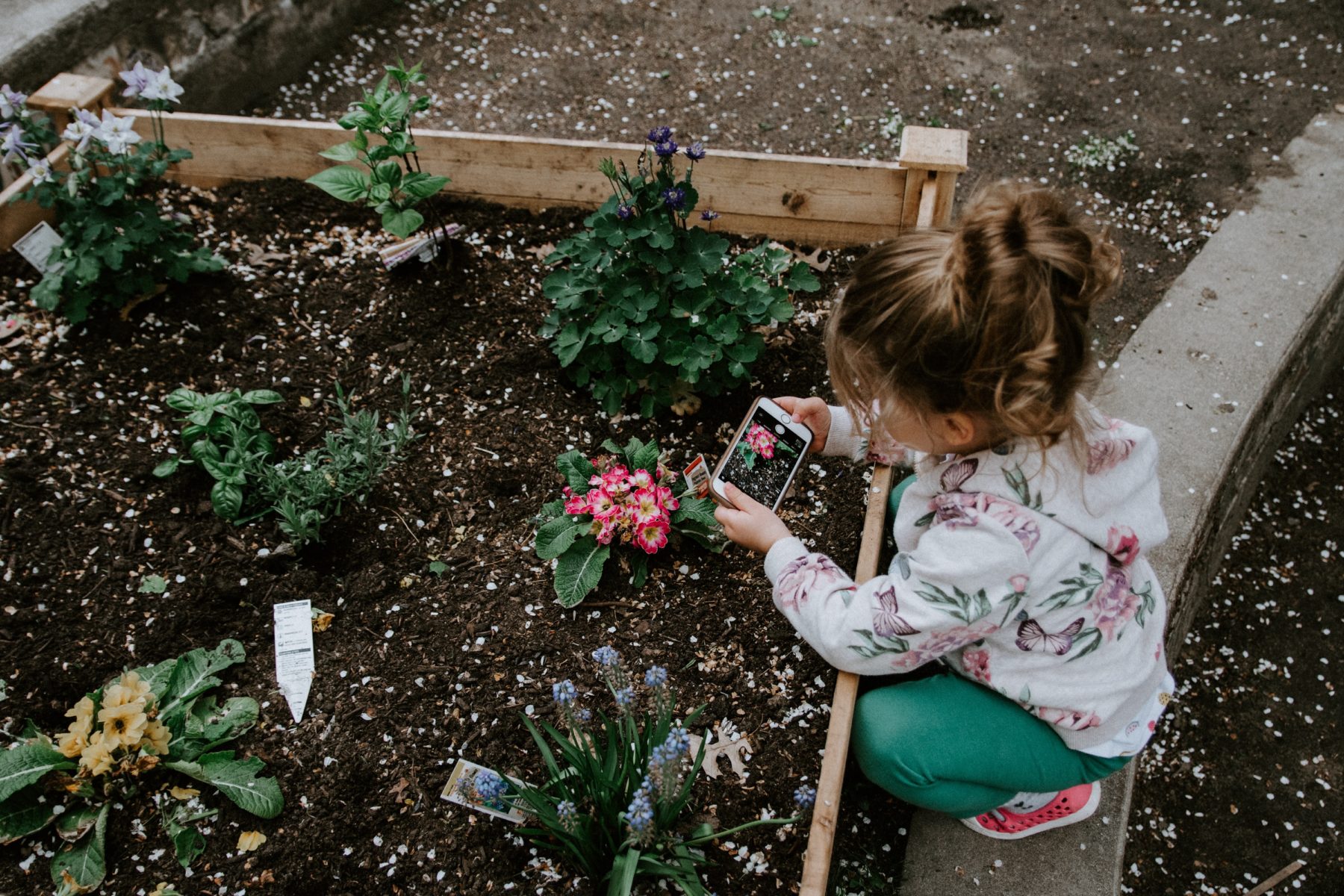Montessori Gardening for Kids!
Montessori Gardening for kids is about bringing kids into the garden provides them with a rich learning experience that they’ll remember for years to come. Gardening gets children outside and deeply involved in nature’s works. And, what could be more hands-on and based in reality than sowing and reaping living plants?
Fortunately, you don’t need to be a horticulturist to bring kids out into the garden. According to Montessori philosophy, the adult’s job is to prepare the environment. With a bit of guidance, you can set the scene for children to develop their green thumbs. Below are a few tips to get you started.
Start With Seeds
Planting from seeds is essential. We want children to experience the magic of watching something grow from nearly nothing. Plus, you always want to tell the “whole story” when it comes to studying life.
Set children up for success in Montessori Gardening for kids. Radish and carrot seeds tend to sprout easily, so these plants are a good choice. Check the backs of seed packets to make sure you are planting at the right time.
Let children see firsthand the process of germination. To do this, wrap seeds up in wet paper towels, and seal them up in zip lock bags. Then leave the seeds in a dark place for a few days. When you check on them, you’ll see they have sprouted.
Use leading questions to allow kids to discover on their own what a seed needs to sprout. Let them come to the conclusion that the seeds needed moisture and darkness to germinate.
Give Each Child A Plot of His Own
Let each little learner take ownership of a small piece of the garden. Seeing “his” seeds sprout and grow, and finally harvesting his fruits is fascinating for a child. The personal connection he has with his “own” plants paves the way for long term learning.
Invest In Child Sized Tools
In Montessori gardening for kids, we always want to provide children with real experience. Since kids are smaller and less dexterous than adults, we often need to adjust the tools they use. However, kids need to actually contribute. That means they need real, functional tools made from high-quality materials.
Purchasing a child-sized shovel, trowel, and rake is well worth the investment. With these tools, children can participate in Montessori gardening for kids in a meaningful way. This boosts their confidence, heightens the learning experience, and gives them real skills they can use throughout life.
Responsibilities and Practical Life from Montessori Gardening for Kids
Children should tend to their own plants as they grow. Edible plants should be harvested and served. Teach kids to prepare meals and snacks from what they have planted. Flowers can be cut for weekly flower arranging.
Understanding Vascular Systems
Celery plants are perfect for a discovery-based lesson on how plants take in food and water. First, cut celery stalks and leave them in vases of water mixed with a bit of food coloring. Children can observe the colored water making its way up the stalk and all the way to its leaves. This is a fun experiment in Montessori gardening for kids.
Many children may already be familiar with the process water takes through plants. However, there is more to learn here. Plants have two modes of bringing energy through themselves, known as the xylem and the phloem. They draw water up through the xylem and bring food down through the phloem. Kids can see this first hand by cutting up the celery after the food coloring travels up the stalks. They can identify which parts are the xylem and which parts are the phloem. You can also explain that plants make their own food using sunlight. With a hands-on lesson like this one, the littlest learners can discover and grasp advanced scientific concepts.
Much can be observed by simply spending time among growing plants, including plant life cycles and the changing seasons. There are endless opportunities for learning in Montessori gardening for kids!


